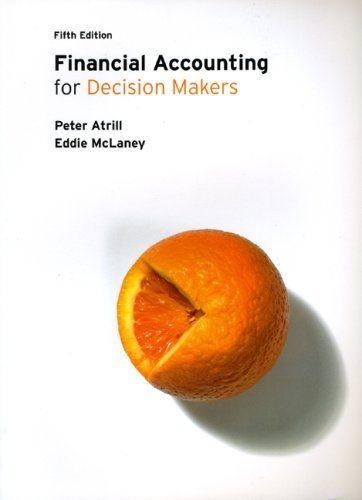Question
WorldCom Corporation began as a small company in the 1980s. Under the direction of CEO and co-founder Bernie Ebbers, it quickly grew to become one
WorldCom Corporation began as a small company in the 1980s. Under the direction of CEO and co-founder Bernie Ebbers, it quickly grew to become one of the largest telecom companies in the world. Ebber's success resulted in his theory that survival in the telecommunications industry would come only thorough company growth and expansion. Therefore, during the next two decades, WorldCom grew through acquisitions, purchasing more than 60 different firms in the latter half of the 1990s alone. In 1997, WorldCom acquired MCI in a transaction that cost the company roughtly $37 billion, and it would have purchased Sprint if it had not been prevented by federal antitrust regulations.
In less than two decades, WorldCom had grown from a small telephone company to a corporate giant, controlling about half of the U.S. Internet traffic and handling at least half of the e-mail traffic throughout the world. The value of the WorldCom stock followed the company's growth, eventually reaching more than $60 per share. However, corporate scandal and falsified financial statements soon led the company down the dreaded spiral until, in 2002, it filed for the largest Chapter 11 bankruptcy in U.S. history.
In 1998, WorldCom experienced a sudden and unexpected halt in its formerly increasing revenues. WorldCom's stock immediately took a hit. As its stock continued to drop, WorldCom became unable to reach Wall Street expectations, and in a desperate effort to maintain investor confidence, the company resorted to dishonesty.
WorldCom had established a large reserve account, which was initially maintained to cover the liabilities of companies it purchased. However, when revenues from operations continued to decrease, the revenues from operations continued to decrease, the company decided to use these reserve funds to boost its numbers. In total, WorldCom illegally converted $3.8 billion of reserve funds into revenues from operations.
However, these fictitious revenues were not enough to help WorldCom meet its expected level of revenue. So, in December 2000, CFO Scott Sullivan ordered accountants at the company's Texas division to reclassify operating expenses. Members of the accounting staff were to reclassify operating expenses (an income statement account) as capital expenses as capital expenses (a long-term asset account). For example, lease expenses and computer expenses would become lease assets and computer assets.
This reclassification of expenses did two things. First, by greatly decreasing operating expenses on its income statement, WorldCom increased its net income. Second, by converting operating expenses into capital assets, the company increased its long-term asset account. The idea was that a huge increase in both retained earnings (from an increase in net income) and assets would inevitably lead to an increase in the value of WorldCom and its stock. Overall, nearly $3.85 billions of operating expenses were misclassified as capital assets.
Other fraudulent activity dug the company's fraud deeper and deeper until the schemes were eventually detected and investigated by the company's own internal audit department and the SEC. In the end, it was discovered that more than $11 billion had been defrauded from a company that was soon forced to file the largest Chapter 11 bankruptcy ever recorded. As a result of the fraud, thousands of employees lost not only their jobs, but also their entire retirement savings. The fraud cost investors billions of dollars as the company quickly went from a multi-billion dollar franchise to bankruptcy. Several company executives were indicted on counts of conspiracy and security fraud. The main perpetrator, Scott Sullivan (CFO) received a prison sentence requiring him to pay as much as $25 million in fines and serve up to 65 years in prison. Other executives received similar sentences. In essence, the WorldCom fraud left those involved in the company with nearly nothing. It proved a prominent example of the age-old adage "cheaters never prosper".
1. You are a new accountant at WorldCom. On your third day, the Chief Financial Officer (CFO) approaches you and asks you to change some numbers in a few accounts that will help the company look better financially. You know that it will be unethical to change the numbers, but you are afraid that if you don't do what is being asked of you, you may get terminated from your position. What would you do in this situation?
2. The most expensive type of fraud is financial statement fraud. Do you agree with this? Why or why not?
3. One of the acts that changed many of the rules for auditors was the Sarbanes-Oxley Act of 2002. This act changed the rules and states that auditors must first look at a company's internal controls and then record their findings in the annual report. Do you think that the Sarbanes-Oxley Act of 2002 helped reduce the number of fraud cases? make sure to provide support for your answer.
Step by Step Solution
There are 3 Steps involved in it
Step: 1

Get Instant Access to Expert-Tailored Solutions
See step-by-step solutions with expert insights and AI powered tools for academic success
Step: 2

Step: 3

Ace Your Homework with AI
Get the answers you need in no time with our AI-driven, step-by-step assistance
Get Started


